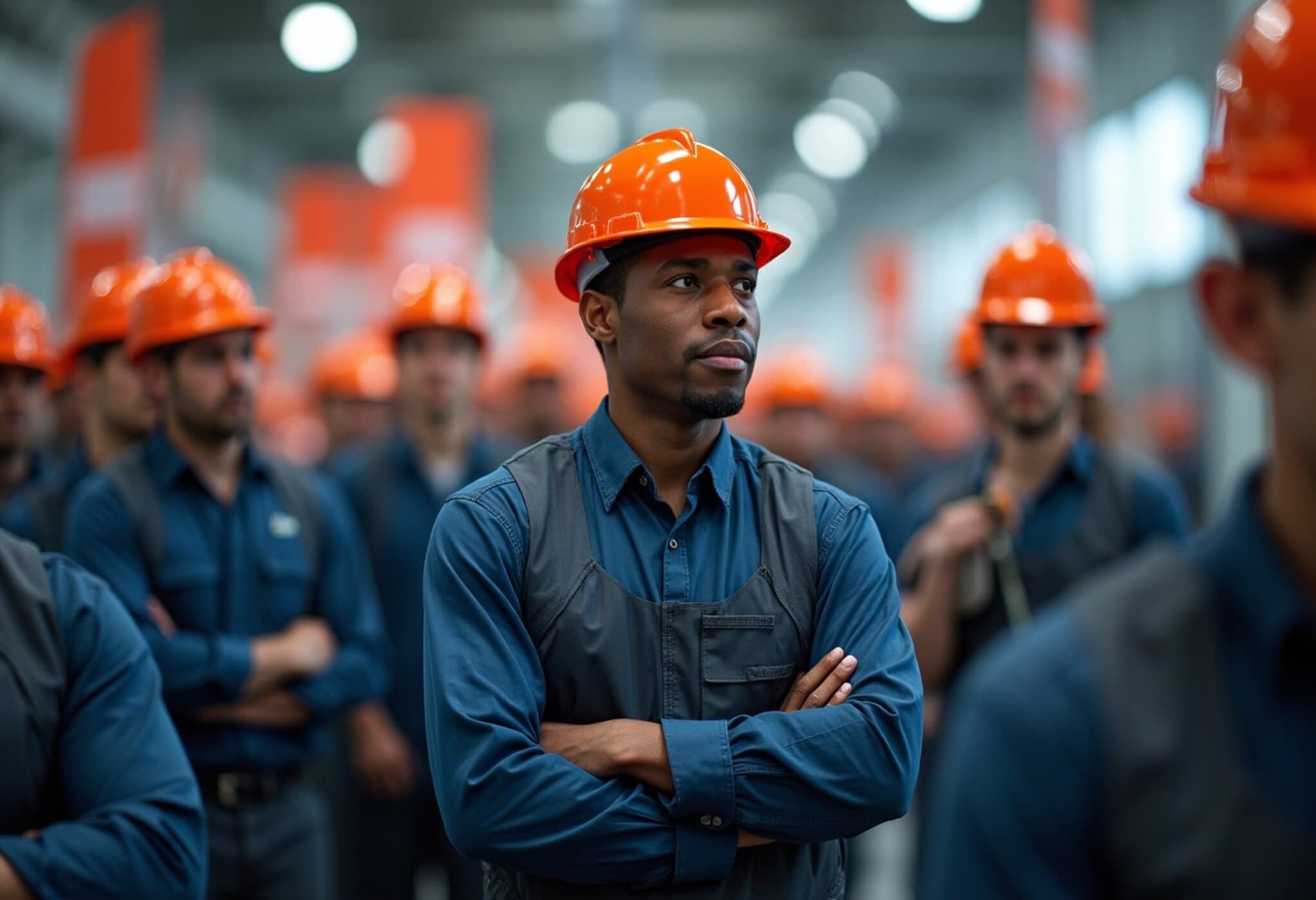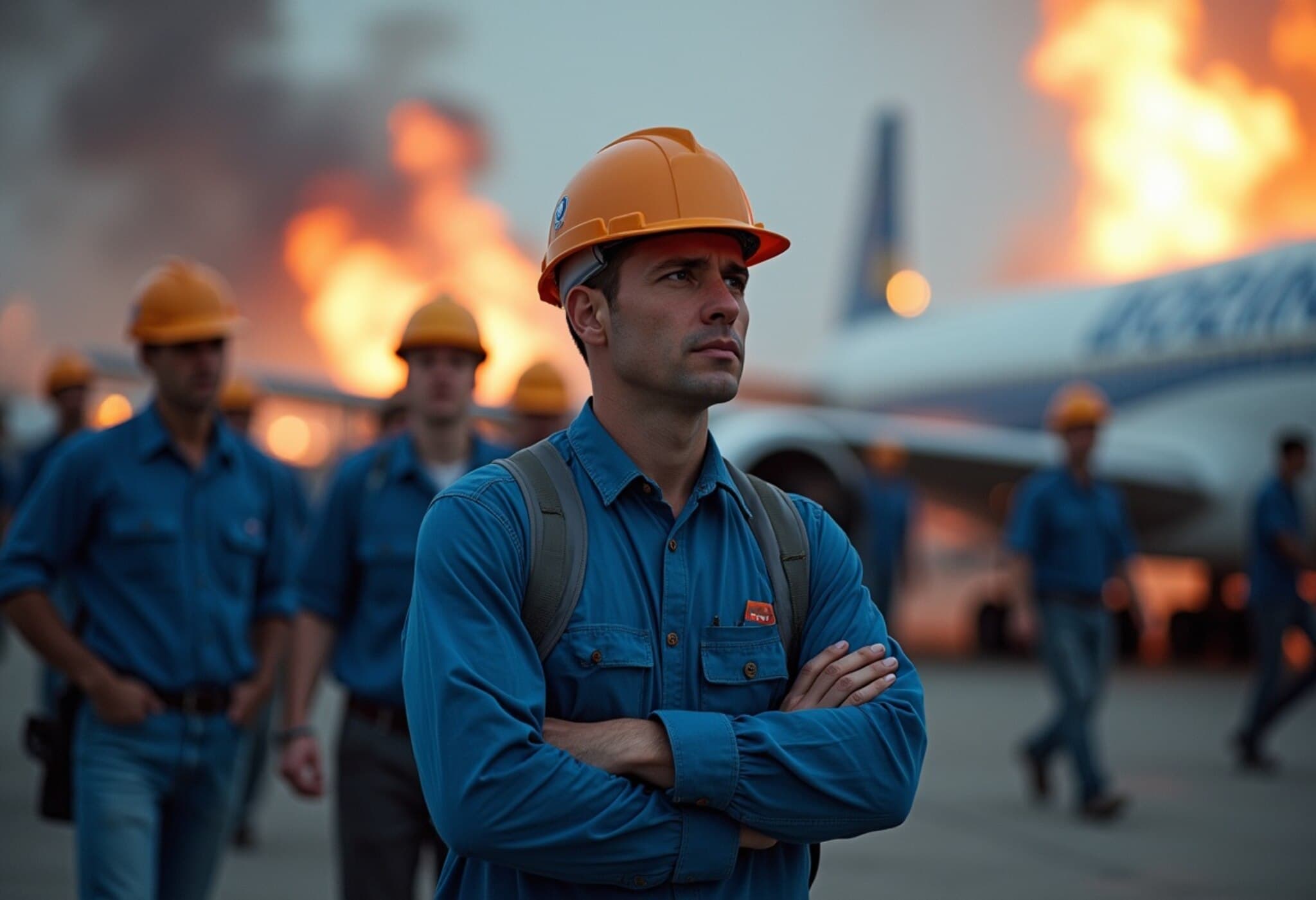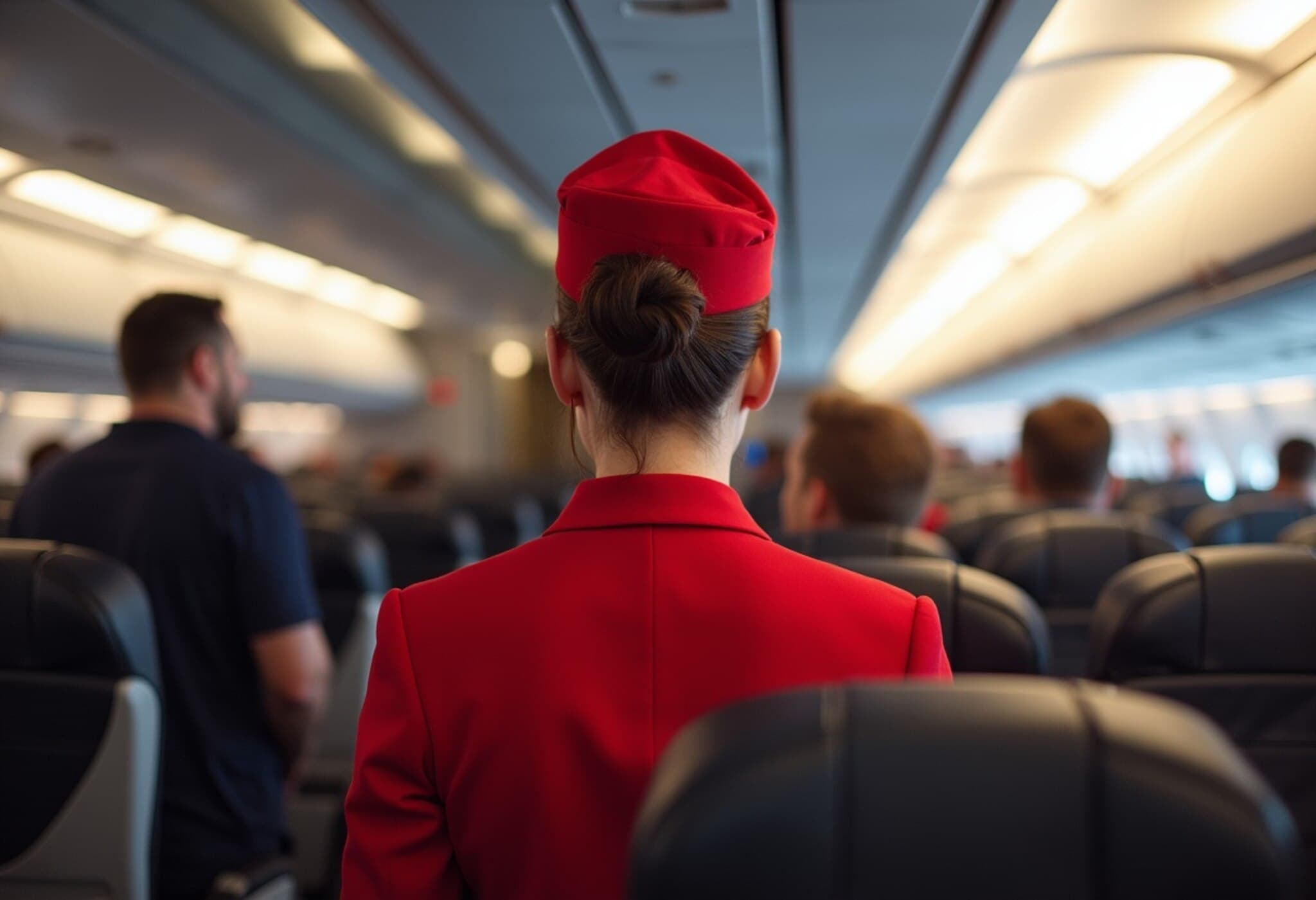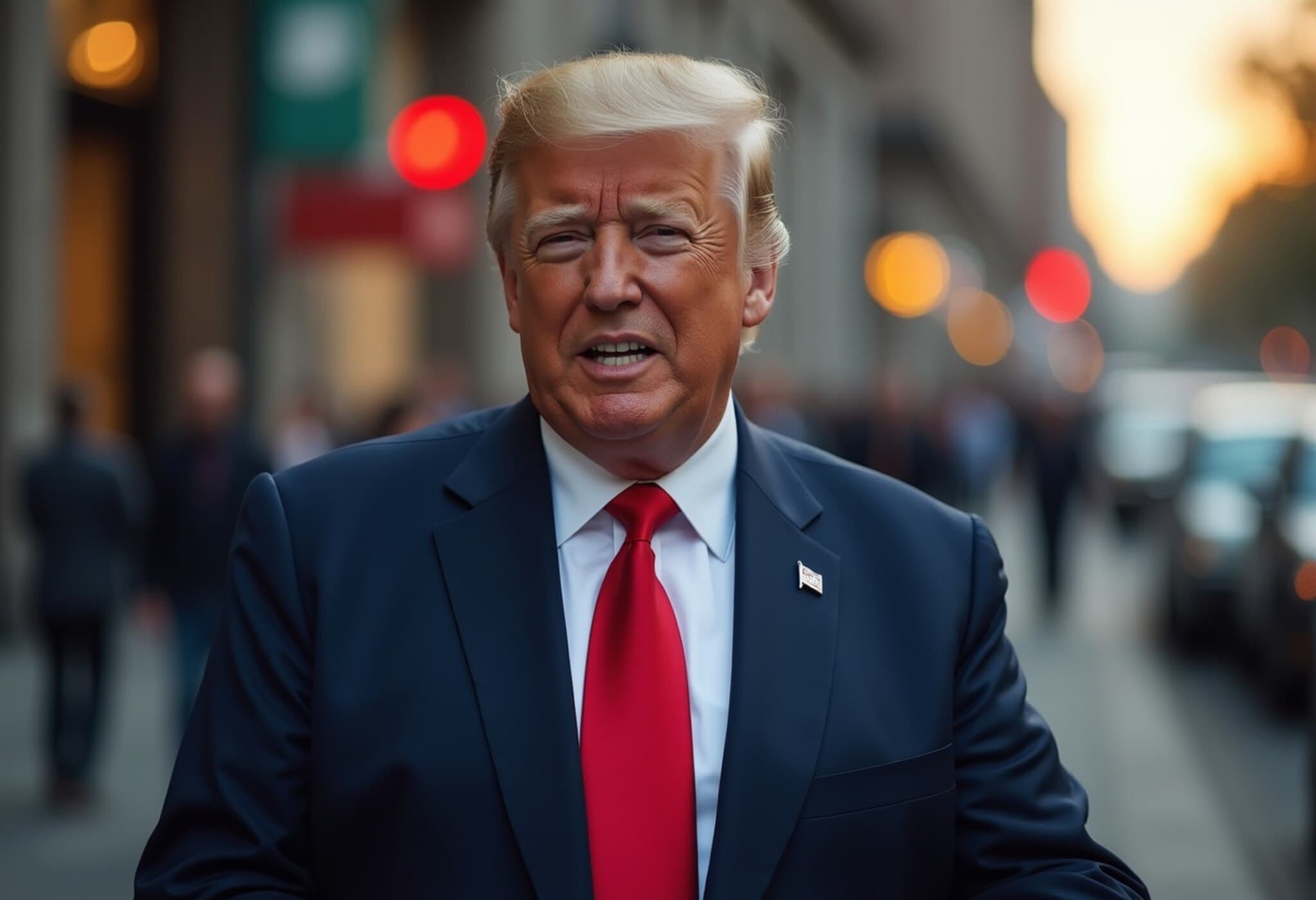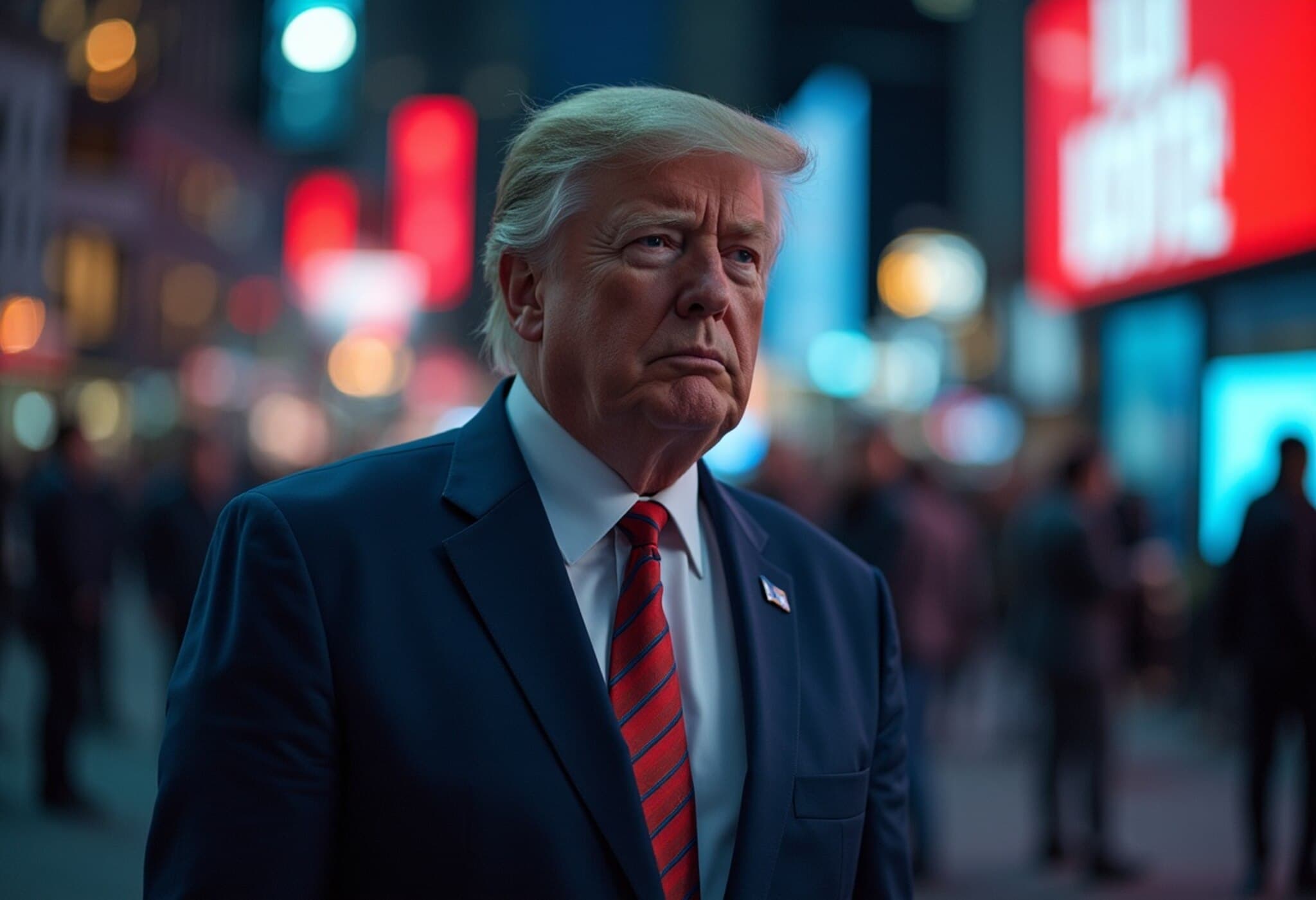Over 3,200 Boeing Fighter Jet Workers Launch Strike Amid Contract Dispute
On August 4, 2025, a significant labor strike began as more than 3,200 unionized Boeing employees in the St. Louis and Illinois areas walked off the job. These skilled workers, integral to the production of key U.S. military aircraft such as the F-15 and F/A-18 fighter jets, rejected Boeing’s latest contract proposal, citing concerns that reach far beyond wages alone.
What Sparked the Strike?
The dispute centers on Boeing’s proposed four-year labor contract. The offer included a 20% wage increase, a $5,000 ratification bonus, and enhanced vacation and sick leave benefits. Boeing touted this as an increase that would raise average pay by 40%. Yet, members of the International Association of Machinists and Aerospace Workers (IAM) District 837 felt this proposal did not adequately reflect their contributions or keep pace with rising living costs. Union leaders pointed out that the deal mirrored an earlier contract offer previously rejected, feeding a growing frustration that despite surging defense revenues, frontline workers haven’t seen equitable gains.
Beyond Pay: What the Workers Are Demanding
Union representatives have made it clear that their demands go well beyond a simple pay raise. Key issues include:
- Job Security: Safeguards to prevent outsourcing and protect current positions amid increasing defense production.
- Healthcare Improvements: Enhanced benefits to address growing medical costs for workers and their families.
- Fair Compensation for Overtime: Concerns that rising workloads come without corresponding pay adjustments.
- Transparent Career Progression: Clearer promotion pathways and performance evaluation systems.
- Retirement Benefits: Strengthened pension plans for long-term financial security.
According to Tom Boelling, President of IAM District 837, "Our members deserve a contract that truly honors their skill, dedication, and the indispensable role they play in defending our nation." The union frames this strike as a fight for respect and recognition, not just financial gain.
Boeing’s Reaction and Strategic Response
Boeing expressed disappointment over the workers’ rejection of the offer but conveyed preparedness for the strike. Dan Gillian, Vice President and General Manager of Boeing’s defense facilities in St. Louis, described their proposal as "generous". Meanwhile, CEO Kelly Ortberg minimized concerns, referencing Boeing’s experience managing previous labor disruptions, including a seven-week strike last year involving commercial aircraft builders in the Northwest.
Implications for U.S. Defense and Boeing’s Future
The strike directly affects production lines for several vital military platforms, including:
- The iconic F-15 and F/A-18 fighter jets.
- The T-7A Red Hawk advanced jet trainer.
- The unmanned MQ-25 Stingray aerial refueling drone.
- The newly approved F-47A fighter jet, slated for U.S. Air Force deployment.
Such disruptions have raised fears of delays in delivering these critical defense assets. At stake is not only Boeing’s contractual obligations worth billions of dollars but also broader questions about how major defense contractors balance profitability with fair labor practices. As Boeing expands its defense portfolio amid geopolitical tensions, the company faces mounting pressure to align worker welfare with its strategic ambitions.
Expert Analysis: Navigating Labor Relations in Defense Manufacturing
This strike underscores a growing labor trend in the American manufacturing sector, particularly in defense industries critical to national security. With inflation and cost-of-living increases squeezing households, workers are demanding not just incremental pay hikes but comprehensive contracts addressing job stability, benefits, and quality of life. Experts suggest that Boeing’s situation is emblematic of a broader reckoning between corporations’ bottom lines and the value placed on skilled labor.
From a policy perspective, sustained labor disputes in defense manufacturing could have ripple effects on national security readiness and supply chain resilience. Observers urge increased dialogue between government, industry, and labor representatives to foster contracts that support both competitive defense production and a satisfied workforce.
Editor’s Note
This unfolding strike at Boeing highlights the complex intersection of labor rights, corporate strategy, and national security priorities. While Boeing has presented a seemingly robust contract offer, the workers’ rejection signals a deeper call for respect, security, and equitable treatment in a high-stakes industry. How Boeing resolves this standoff will serve as a critical case study in managing modern labor relations within America’s defense industrial base. Readers are encouraged to consider how fair labor practices contribute not just to company success, but to the broader societal fabric that underpins national defense.

